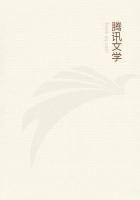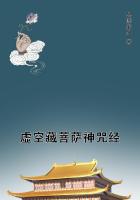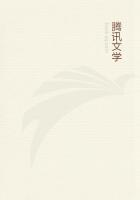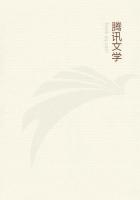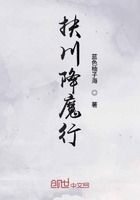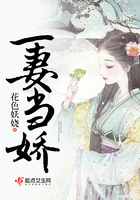This decree becoming known, there was a tremendous crowd to see the old fellow led to the gallows. There was a line drawn up as if for a ducal entry, and in it many more bonnets than hats. Vieux par-Chemins was saved by a lady curious to see how this precious violator would finish his career. She told the duke that religion demanded that he should have a fair chance. And she dressed herself as if for a ball; she brought intentionally into evidence two hillocks of such snowy whiteness that the whitest linen neckerchief would have paled before them; indeed, these fruits of love stood out, without a wrinkle, over her corset, like two beautiful apples, and made one's mouth water, so exquisite were they. This noble lady, who was one of those who rouse one's manhood, had a smile ready on her lips for the old fellow. Vieux par-Chemins, dressed in garments of coarse cloth, more certain of being in the desired state after hanging than before it, came along between the officers of justice with a sad countenance, glancing now here and there, and seeing nothing but head-dresses; and he would he declared, have given a hundred crowns for a girl tucked up as was the cowherdess, whose charms, though they had been his ruin, he still remembered, and they might still have saved him; but, as he was old, the remembrance was not sufficiently recent. But when, at the foot of the ladder, he saw the twin charms of the lady, and the pretty delta that their confluent rotundities produced, the sight so much excited him that his emotion was patent to the spectators.
"Make haste and see that the required conditions are fulfilled," said he to the officers. "I have gained my pardon but I cannot answer for my saviour."
The lady was well pleased with this homage, which, she said, was greater than his offence. The guards, whose business it was to proceed to a verification, believed the culprit to be the devil, because never in their wits had they seen an "I" so perpendicular as was the old man. He was marched in triumph through the town to the palace of the duke, to whom the guards and others stated the facts. In that period of ignorance, this affair was thought so much of that the town voted the erection of a column on the spot where the old fellow gained his pardon, and he was portrayed thereon in stone in the attitude he assumed at the sight of that honest and virtuous lady. The statue was still to be seen when Rouen was taken by the English, and the writers of the period have included this history among the notable events of the reign.
As the town offered to supply the old man with all he required, and see to his sustenance, clothing, and amusements, the good duke arranged matters by giving the injured maiden a thousand crowns and marrying her to her seducer, who then lost his name of Vieux par-Chemins. He was named by the duke the Sieur de Bonne-C------. This wife was confined nine months afterwards of a perfectly formed male child, alive and kicking, and born with two teeth. From this marriage came the house of Bonne-C------, who from motives modest but wrong, besought our well-beloved King Louis Eleventh to grant them letters patent to change their names into that of Bonne-Chose. The king pointed out to the Sieur de Bonne-C------ that there was in the state of Venice an illustrious family named Coglioni, who wore three "C------ au natural" on their coat of arms. The gentlemen of the House of Bonne-C------ stated to the king that their wives were ashamed to be thus called in public assemblies; the king answered that they would lose a great deal, because there is a great deal in a name.
Nevertheless, he granted the letters. After that this race was known by this name, and founded families in many provinces. The first Sieur de Bonne-C------ lived another 27 years, and had another son and two daughters. But he grieved much at becoming rich, and no longer being able to pick up a living in the street.
From this you can obtain finer lessons and higher morals than from any story you will read all your life long--of course excepting these hundred glorious Droll Tales--namely, that never could adventure of this sort have happened to the impaired and ruined constitutions of court rascals, rich people and others who dig their graves with their teeth by over-eating and drinking many wines that impair the implements of happiness; which said over-fed people were lolling luxuriously in costly draperies and on feather beds, while the Sieur de Bonne-Chose was roughing it. In a similar situation, if they had eaten cabbage, it would have given them the diarrhoea. This may incite many of those who read this story to change their mode of life, in order to imitate Vieux par-Chemins in his old age.

